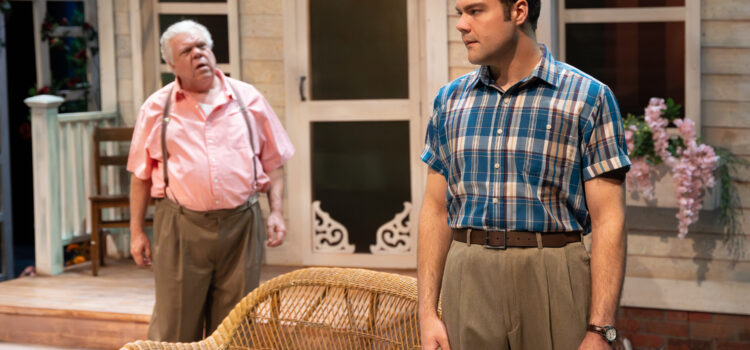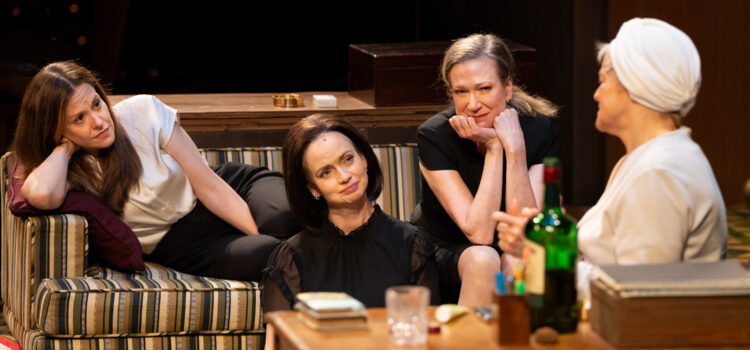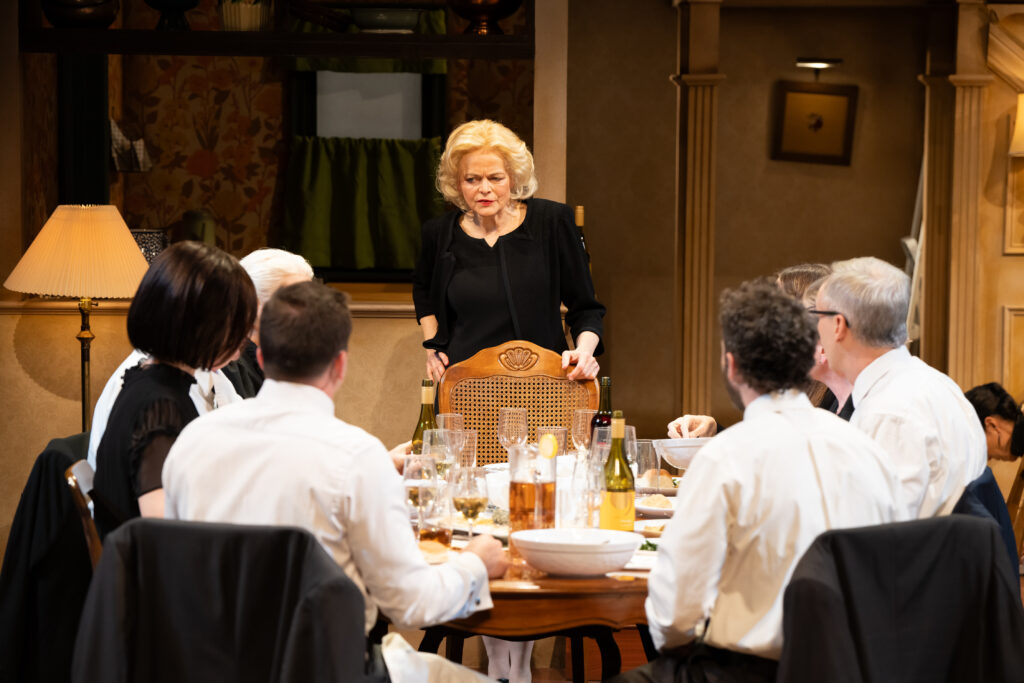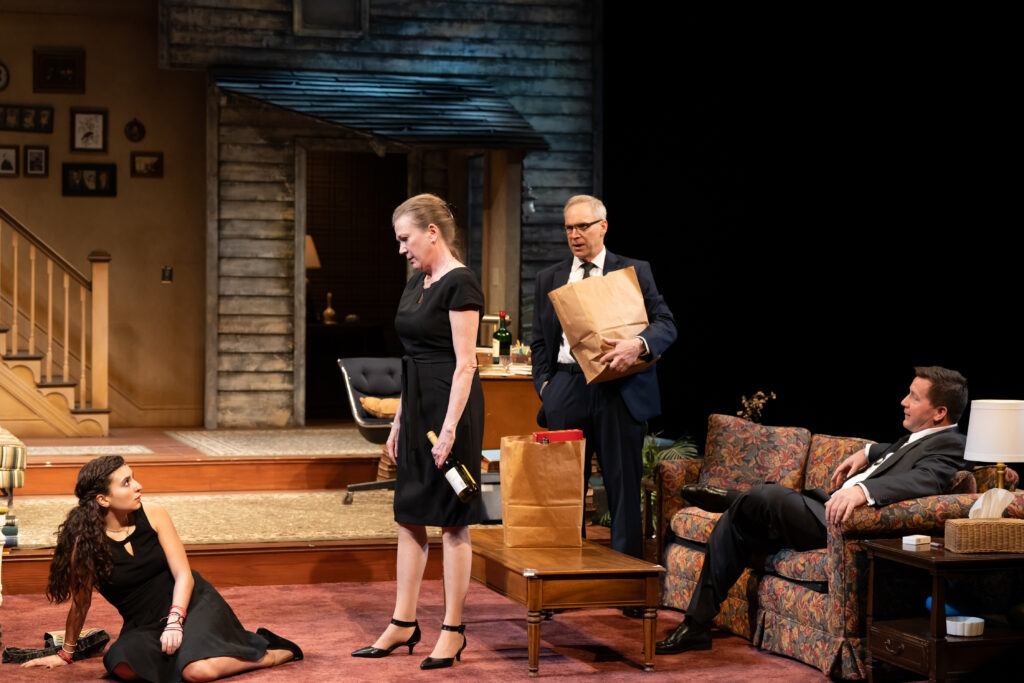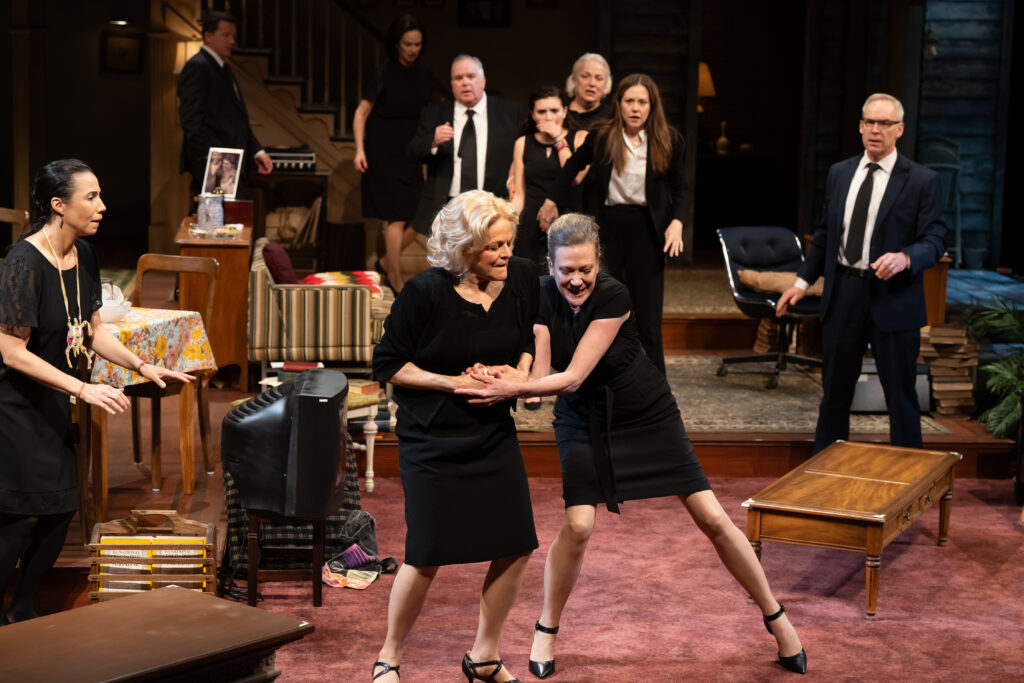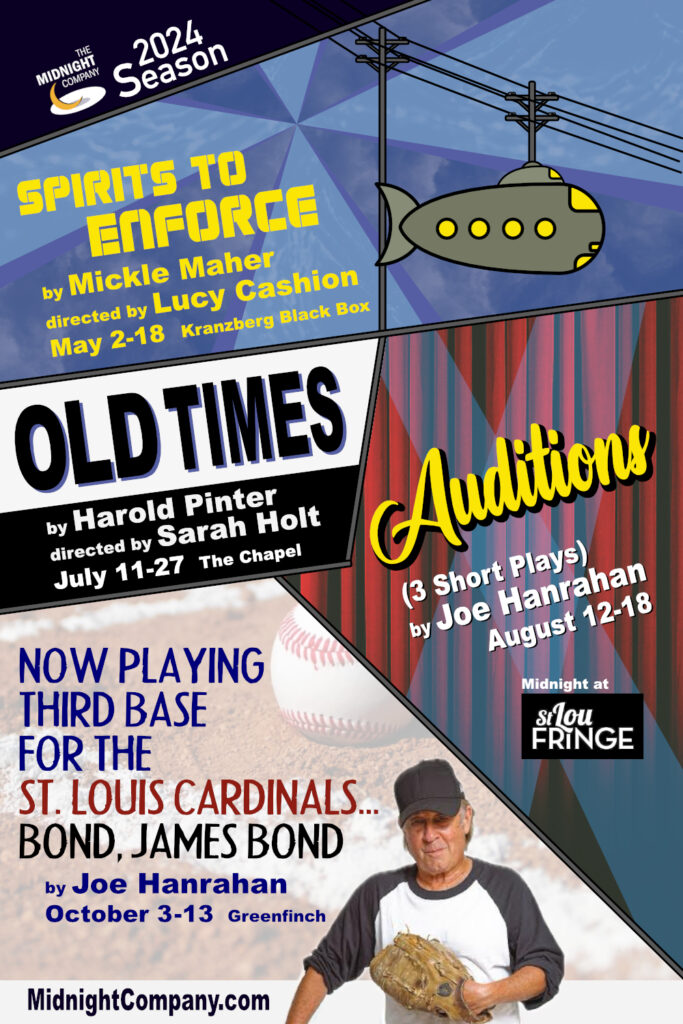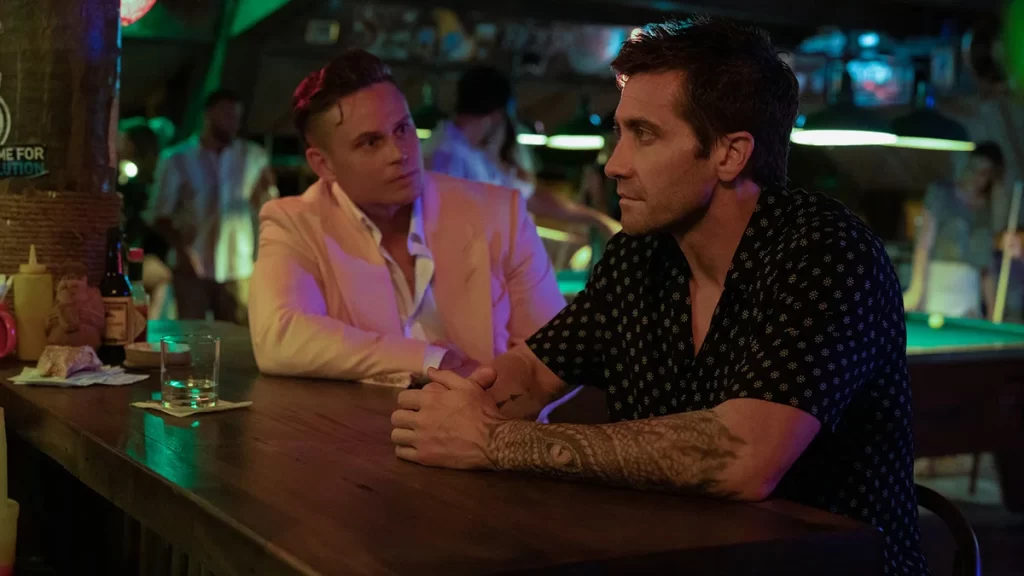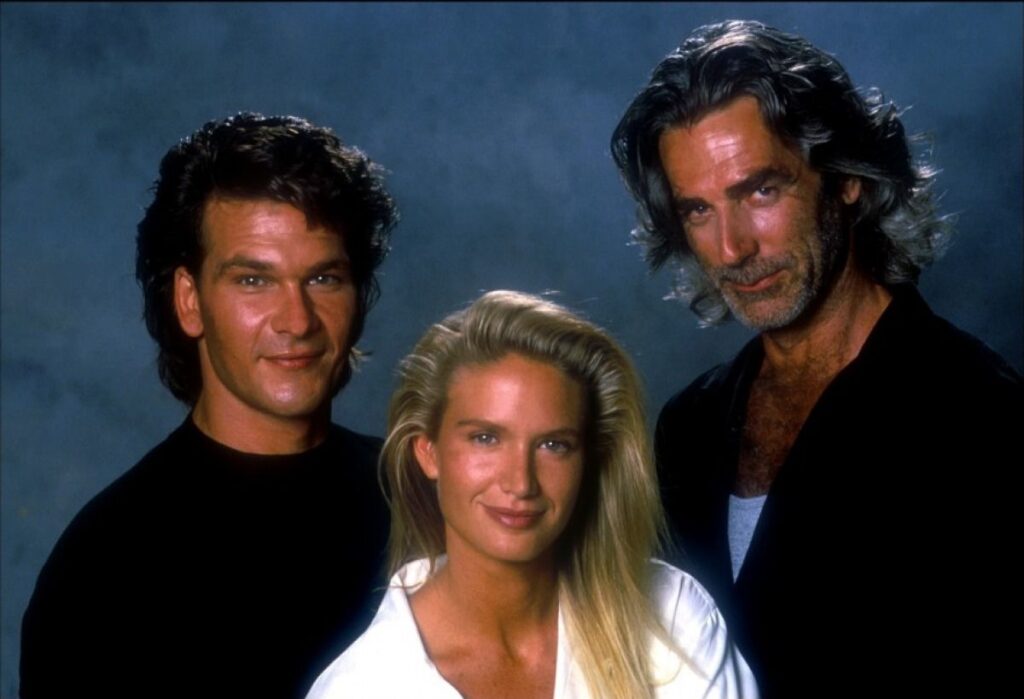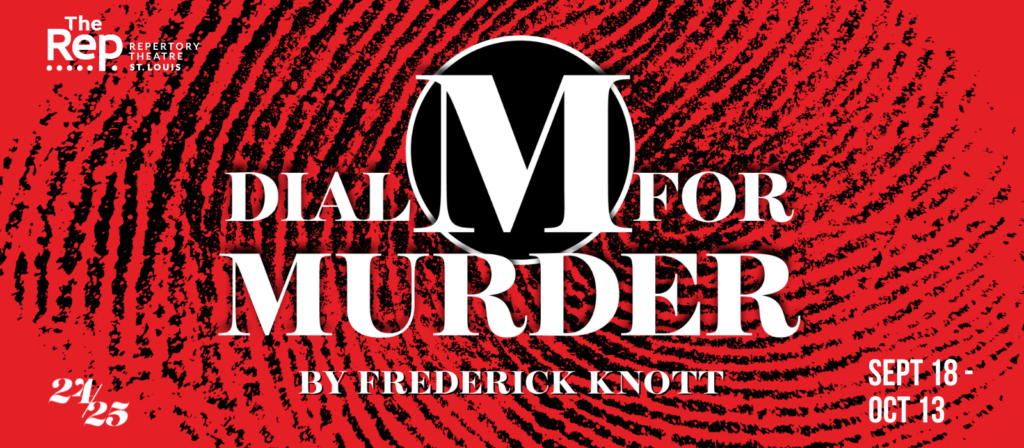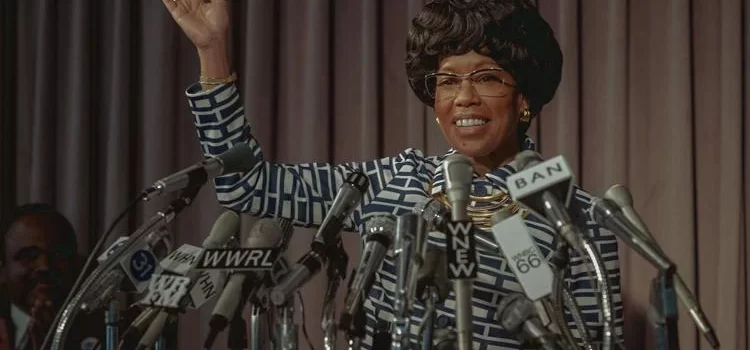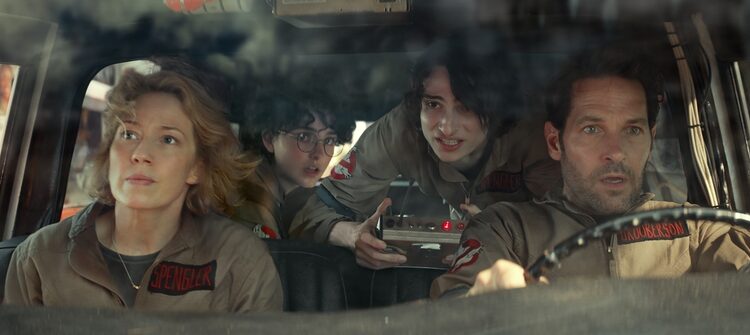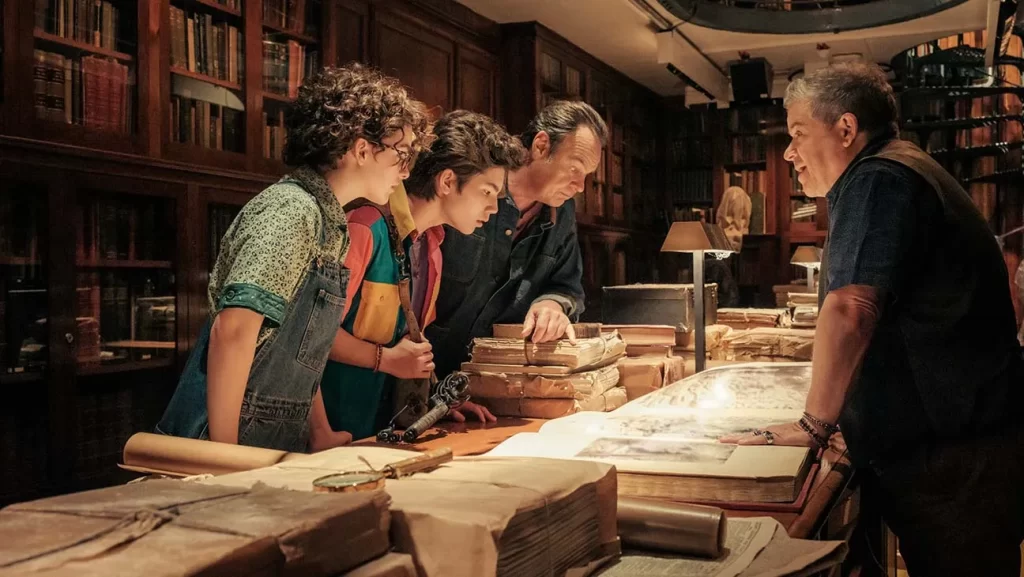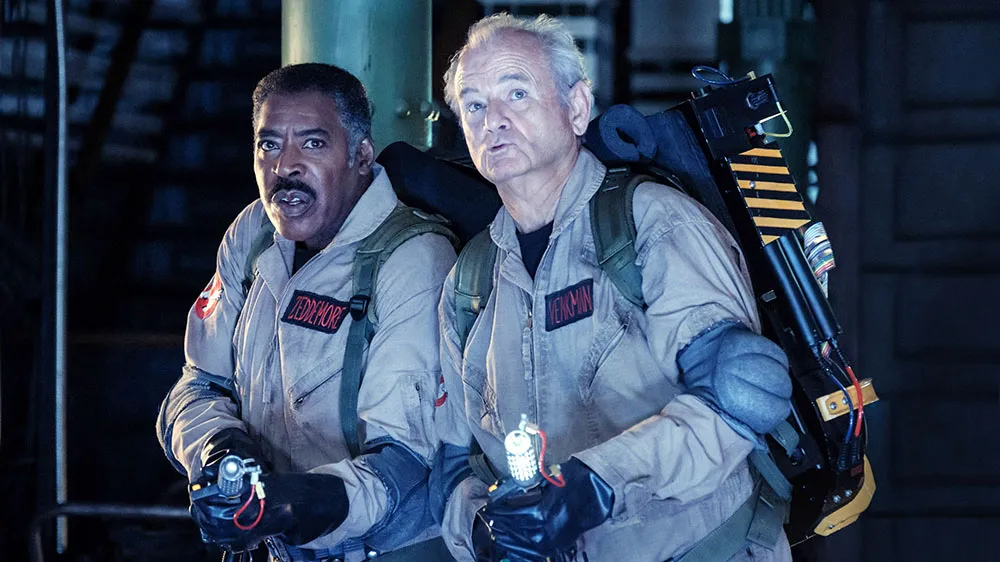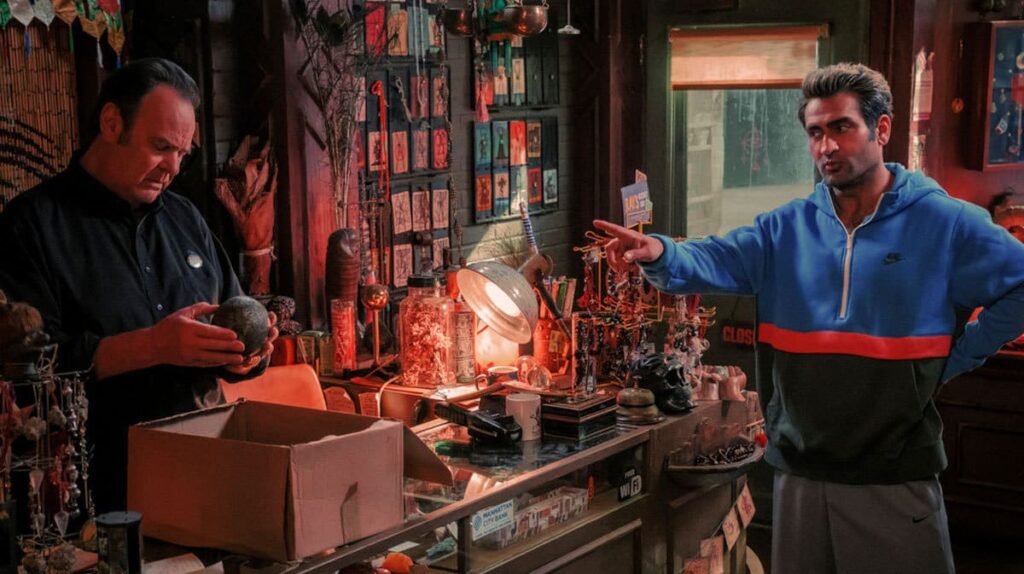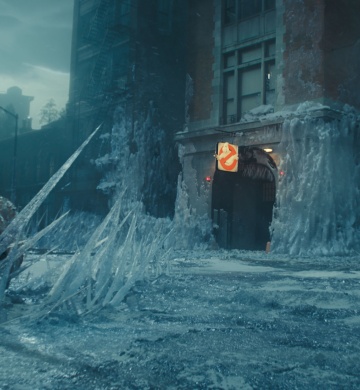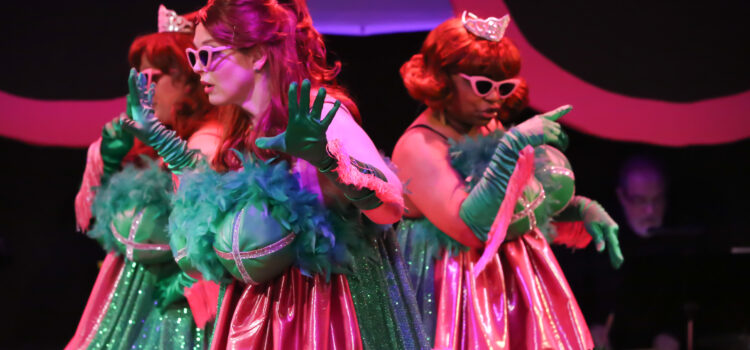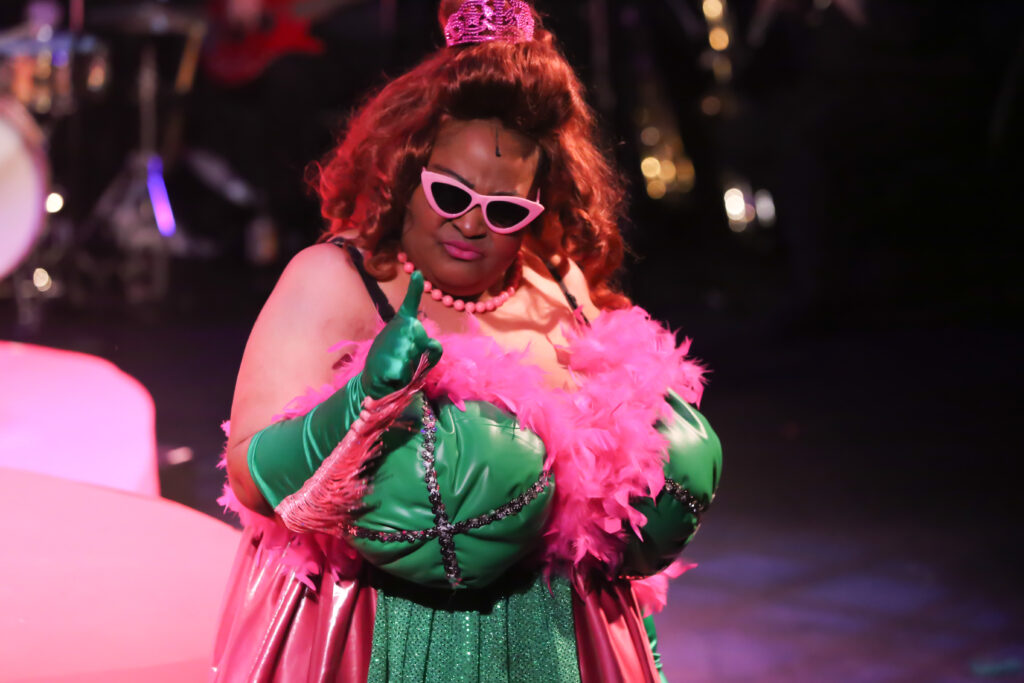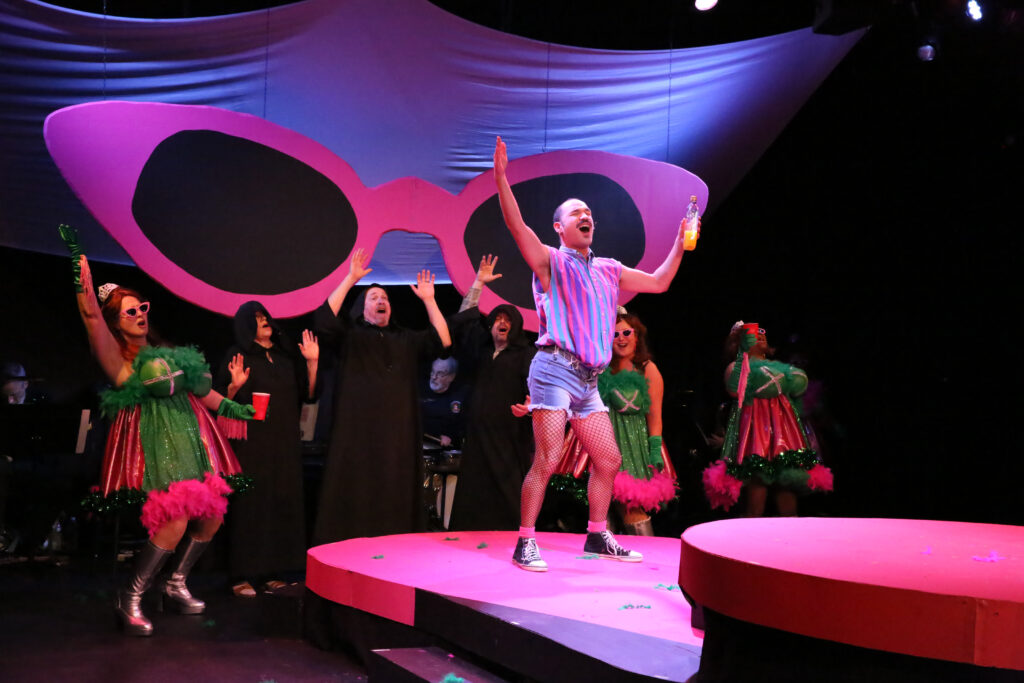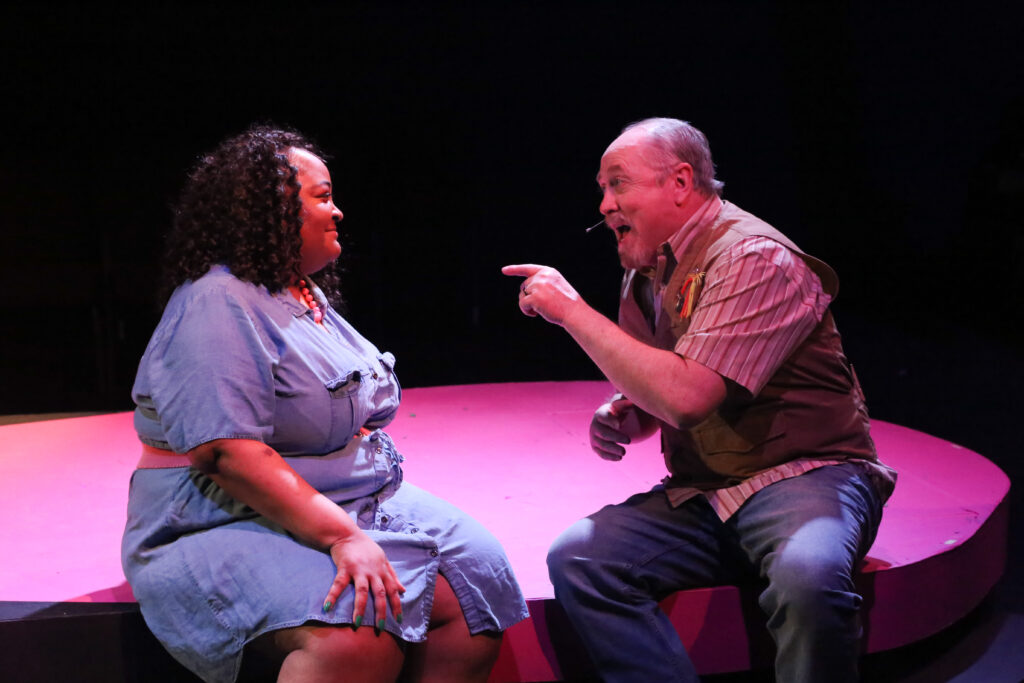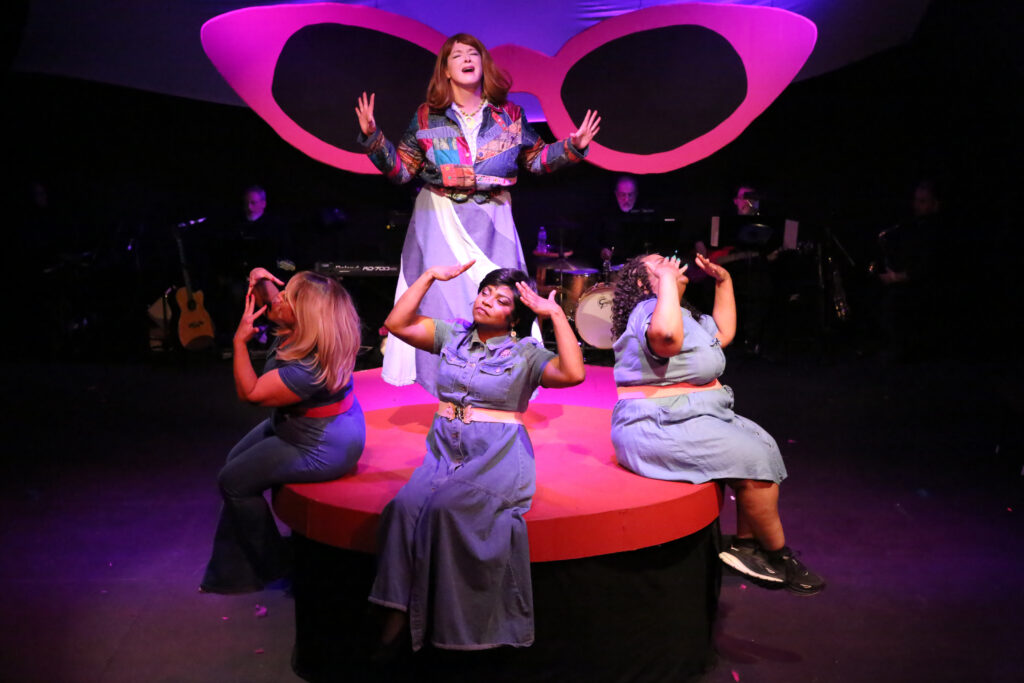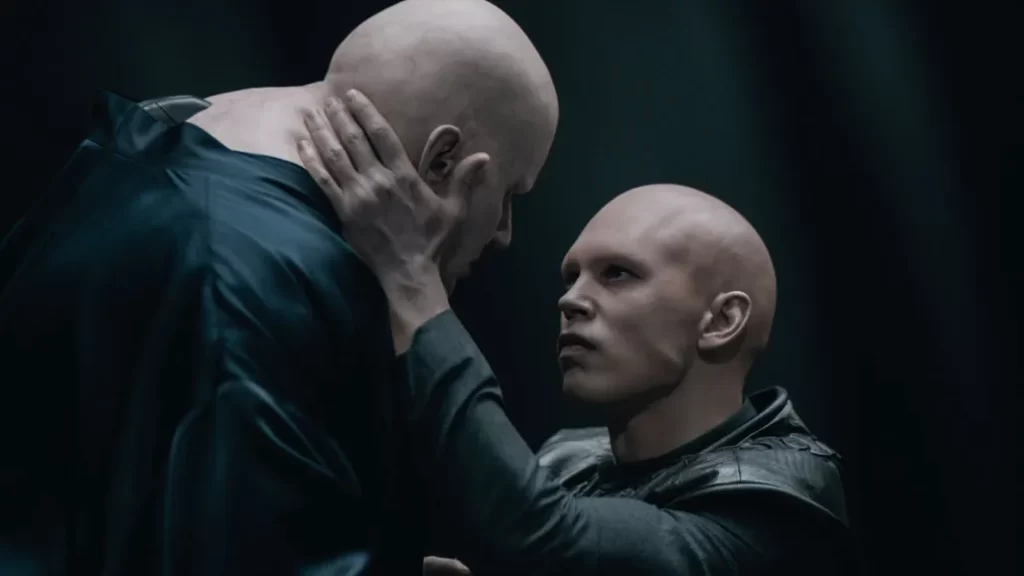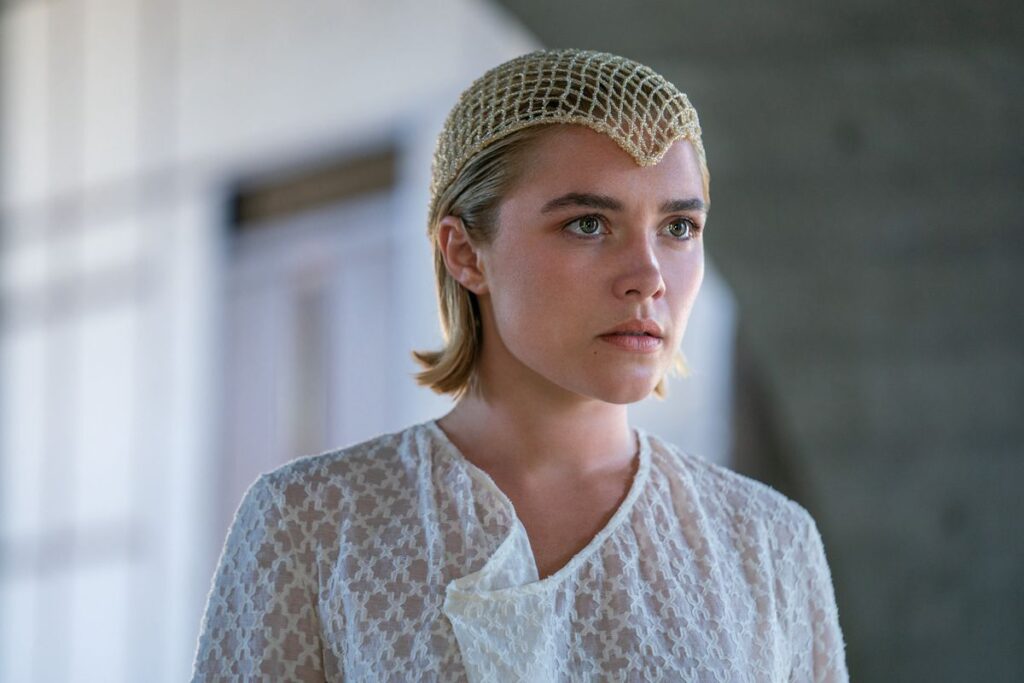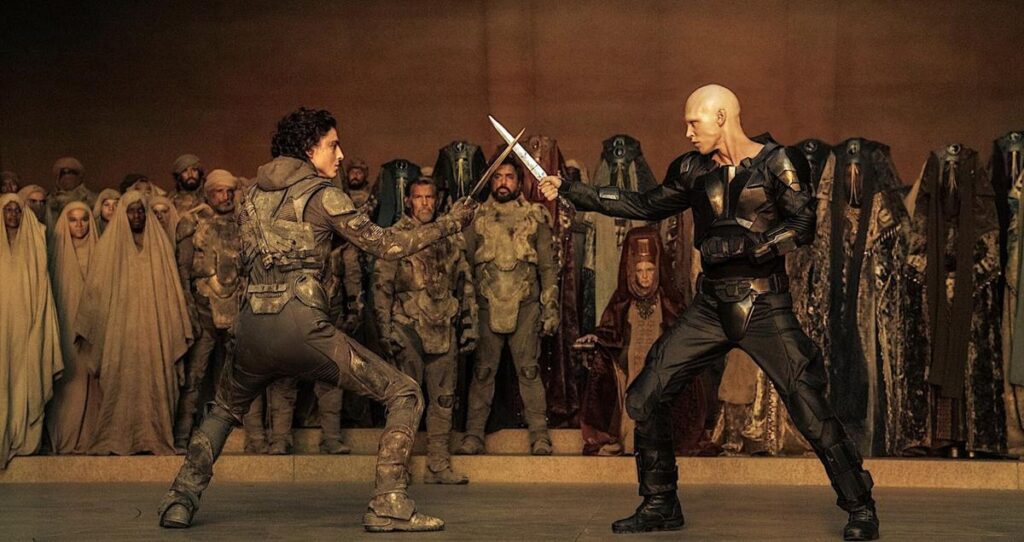By Lynn Venhaus
Why does contemplating personal accountability and public responsibility remain a potent topic these days?
Questions to ask ourselves, and the debate is put under a microscope in an outstanding example — New Jewish Theatre’s piercing, emotionally devastating production of “All My Sons.”
The illusions we live with – about families, neighbors, and success – results in an acting master class and impeccable direction.
A fascinating drama that showcases one of playwright Arthur Miller’s most explosive commentaries on the American Dream, director Gary Wayne Barker carefully calibrates the intensity while slowly peeling back the layers of gripping moral dilemmas.
In an ensemble full of revelatory performances, each actor brings fresh interpretations to a family – and their friends – unraveling because of secrets and lies. As we have discovered throughout history, it’s the cover-up that is so damaging – and with ripple effects because of an egregious swindle.
Seventy-seven years ago, “All My Sons” debuted on Broadway, and in many ways, is still relevant today. It was Miller’s first commercial hit and paved the way for his other epic commentaries on capitalism, American ‘exceptionalism,’ tangled loyalties, and the price for self-delusion, appearances, and power: “Death of a Salesman” in 1949, “A View from the Bridge” in 1955 and “The Price” in 1961, among them.
Miller based this on a true story, after reading a newspaper article about a similar incident.

He has created vivid characters that live in an all-American neighborhood in an Ohio town in the late 1940s, where the locals would like you to believe that they’re living the high life in a setting not unlike a Norman Rockwell illustration.
And scenic designer C. Otis Sweezey was inspired by those popular Saturday Evening Post depictions of post-war prosperity.
The Kellers have been affected by World War II in several ways – their two sons, Chris and Larry served, but Chris (Jayson Heil) came home and works in the family-run munitions factory while Larry did not – he’s been missing in action for more than three years, and everyone but his mother Kate (Amy Loui) has given up on the likelihood that he is alive.
But more than that, military contracts were part of the family business, and selling defective parts has had serious repercussions.
Joe Keller (Greg Johnston) made a careless decision that came to light after faulty aircraft equipment was shipped overseas, resulting in 21 pilots’ deaths.
This misdeed, which he has rationalized and created an alternate reality about, sent his neighbor and partner Steve Deever to prison, while Joe was falsely exonerated, and his sentence commuted.
Still suppressing the secret that has upended their lives and torn apart the people around them, the Kellers are forced to deal with consequences. And a storm is coming, in that carefully cultivated backyard of theirs.
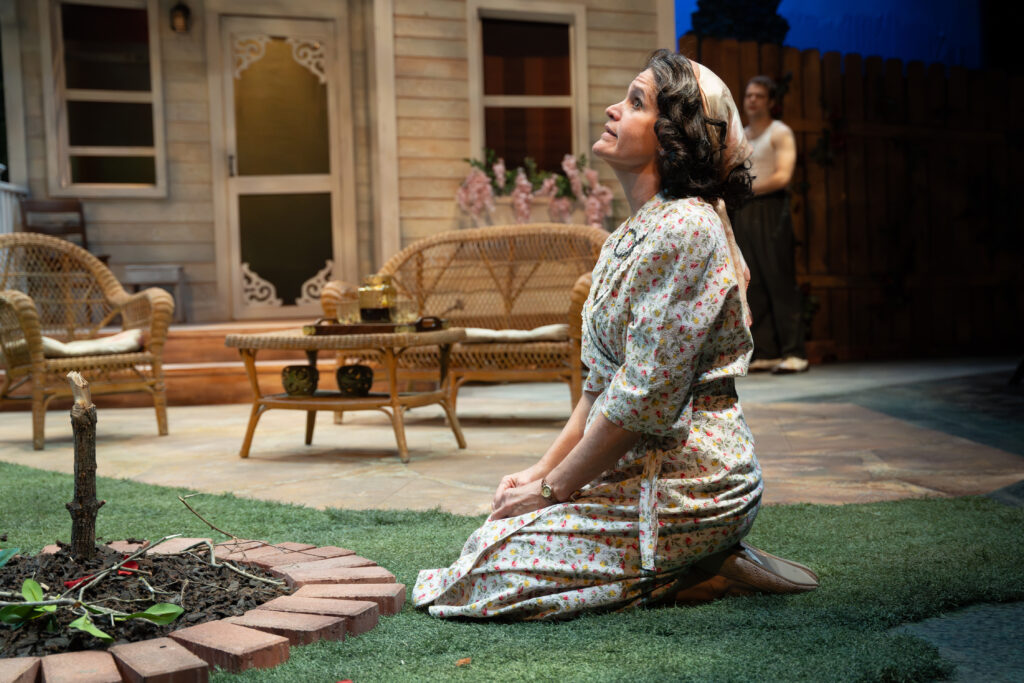
Rarely has a World War II story focused so harshly on disenchantment amidst the winning rah-rah attitude afterwards as incisive as Miller’s play.
Confronting their greed and delving into those expectations that wreak havoc in ordinary lives, supplies the actors with richly textured material.
Johnston, outstanding in last year’s “Uncle Vanya” at St. Louis Actors’ Studio and “The Nerd” at Moonstone Theatre Company (also directed by Barker), has never been better as the patriarch who rules with an iron fist.
In his big booming voice, Johnston, as Joe, boasts about reclaiming his life, thinking that nothing has changed, but everything has, and denial is his tragic flaw.
His son Chris is racked with guilt, and has invited his brother’s girlfriend, Ann Deever (Kristen Joy Lintvedt), to stay at their house. They’ve reconnected and fallen in love, keeping it hidden from his parents. Now, he’s ready to pop the question.
But it’s complicated. Not only was she Larry’s sweetheart, but Ann is the daughter of Joe’s business partner whom he blamed for shipping defective cylinder heads. Ann has not visited her father since he began his prison sentence and believes in his guilt.
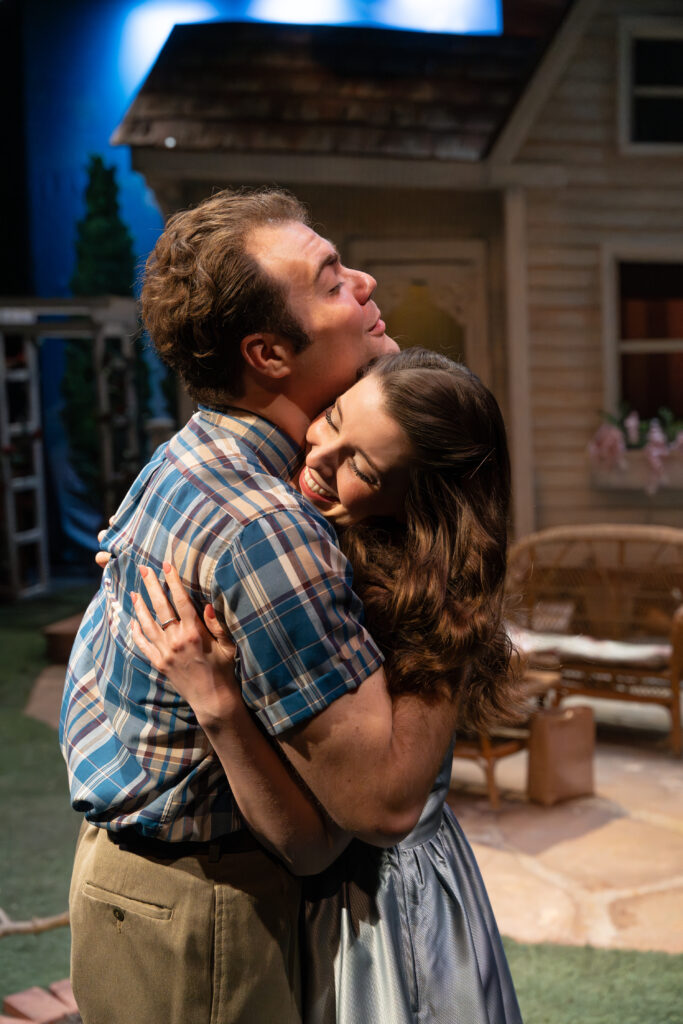
While Joe was focused on making money and providing for his family, he basically put “America’s sons” in harm’s way through his dishonesty. What is that price worth and what communal responsibility do we have for the greater good?
Joe clings to his power, not believing he put freedom in jeopardy, but the fissures become significant. And this downfall, classic tragedy-style, is meticulously measured by a cast at the top of their game, directed with exceptional precision by Barker.
With a sure hand, Barker brings out the deceptions that everyone in this neighborhood lives with, flush with economic success. It is thoroughly compelling and thought-provoking as he shapes the momentum.
In his perceptive way, Miller delves into moral questions about protecting your family – even though others will be negatively affected, and the nature of being complicit in someone else’s crimes.
Kate, the grief-stricken mother, deludes herself that Larry will return, and finds solace in any reason to continue the fantasy – even astrology that a kind neighbor, Riley Capp as Frank Lubey, works on for her.
A razor-sharp Loui smoothly alternates a quick-silver range of emotions as she won’t admit the obvious and demonstrates how trauma has affected her – nervous and tormented by insomnia, headaches, nightmares. Loui goes beyond the dutiful wife and mother depiction to earn our sympathy – and pity.
Heil conveys Chris’ duty, honor and loyalty in a stunning, powerful performance that builds into an unavoidable catastrophe. Confused and uncertain, he shows both the internal and external struggles in a deeply felt, moving portrait that is a breakthrough role for him.
As the girl next door, Lintvedt is a standout as well. In a smaller but pivotal role, Joel Moses commands attention as Ann’s fuming brother George, a son desperately trying to exonerate his father as the fall guy.
He shows up, seething and full of rage, and stirs up a dark cloud, escalating Miller’s tightly constructed tension. The collateral damage will soon be extensive, and these performers deliver in gut-wrenching fashion.
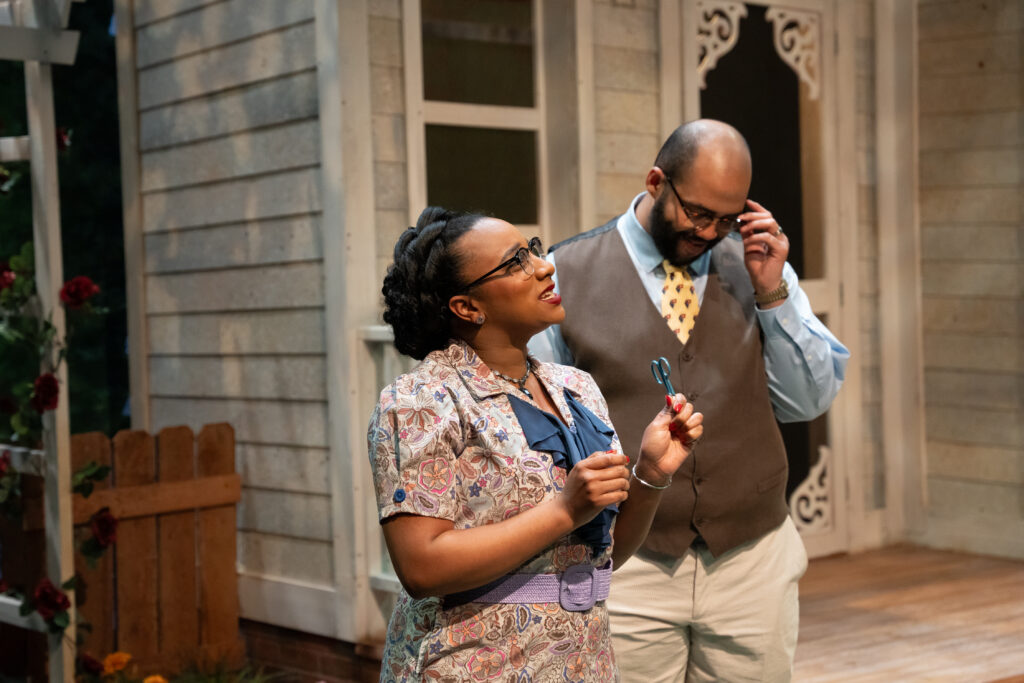
The local doctor Jim Bayliss (Joshua Mayfield) is pleasant but growing more cynical in acclimating to social post-war life while his straight-shooting wife Sue (Zahria Moore), a nurse, has claws that come out in more contentious ways.
The cast also includes sunny Summer Baer as cheerful neighbor Lydia Lubey, who stayed there and has three kids, and 10-year-old Shane Rose in his debut as a local youngster, Bert.
Michele Friedman Siler’s stellar vintage costume design captures the era in comfy casual attire, with George traveling more formally in suit, tie, and hat. Dennis Milam Bensie provided the wig design. Katie Orr’s props match the period as well. Amanda Werre’s sound design is exemplary, and Denisse Chavez’ lighting design provides interesting contrasts.
“All My Sons” grapples with split-second ethical decisions that are life-changing, and this latest New Jewish Theatre production is dramatically impactful and hard-hitting. It should not be missed.
New Jewish Theatre presents “All My Sons” from March 21 to April 7, with performances Thursdays at 7:30 p.m., Saturdays at 4 and 8 p.m., and Sundays at 2 p.m. at the J’s Wool Studio Theatre, 2 Millstone Campus Drive, St. Louis, MO 63146. Individual tickets are $27- $58 and are available by phone at 314.442.3283 or online at newjewishtheatre.org.
In line with the difficult themes of war and readjustment to civilian life, the New Jewish Theatre has decided to partner with the Veteran’s Community Project for an exclusive post-show discussion following the March 31 matinee show. After the curtain closes, audience members will have the chance to learn about the work they are doing to provides high quality and well-developed strategic services that enable Veterans to meet the challenges of day-to-day living, resolve immediate crises, and move towards permanent stability.


Lynn (Zipfel) Venhaus has had a continuous byline in St. Louis metro region publications since 1978. She writes features and news for Belleville News-Democrat and contributes to St. Louis magazine and other publications.
She is a Rotten Tomatoes-approved film critic, currently reviews films for Webster-Kirkwood Times and KTRS Radio, covers entertainment for PopLifeSTL.com and co-hosts podcast PopLifeSTL.com…Presents.
She is a member of Critics Choice Association, where she serves on the women’s and marketing committees; Alliance of Women Film Journalists; and on the board of the St. Louis Film Critics Association. She is a founding and board member of the St. Louis Theater Circle.
She is retired from teaching journalism/media as an adjunct college instructor.

